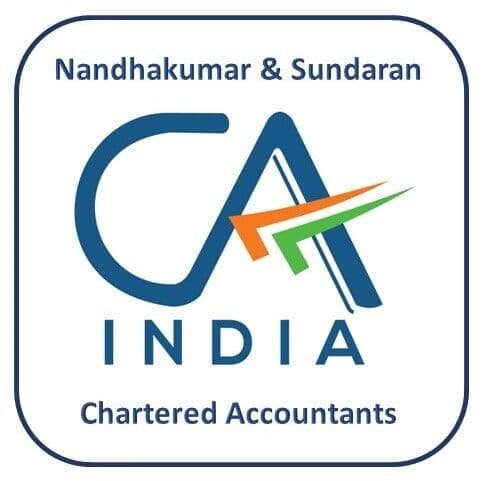Objectives & Mechanism
One of the primary objectives of GST is to eliminate the cascading effect of multiple taxes by allowing businesses to set off prior taxes related to the same transactions through the Input Tax Credit (ITC) mechanism. GST ensures that tax is applied only to the net value added at each stage of the supply chain.
For businesses with multiple locations availing common services, complexities arise in availing ITC. To address this, GST allows the distribution of ITC on a pro-rata basis of the turnover of different GSTINs under a single PAN. Effective from 1st April 2025, Input Service Distributor (ISD) registration is mandatory for businesses with more than one GSTIN and availing common input services.
ISD is a mechanism through which the Head Office (HO) distributes the ITC of common input services procured on behalf of its branches having different GSTINs. The distribution follows the provisions outlined in Section 20 of the CGST Act, 2017, and Rule 39 of the CGST Rules, 2017.
Key Features of ISD
- ISD distributes ITC on common input services procured from third parties.
- Services notified under Reverse Charge Mechanism (RCM) are now also included in the ISD mechanism (as per Finance Bill 2025).
- Separate compulsory registration as ISD under Section 24(viii) of CGST Act.
- ITC is distributed on a proportionate basis based on the turnover of the recipient GSTINs.
- ISD issues ISD invoices for credit distribution and maintains compliance with GSTR-6 returns.
- ITC distribution should be completed in the same month it is availed.
Common Input Services Distributed via ISD
- Audits (internal, statutory, tax, etc.)
- Advertisement, Branding & IPR Services
- Banking and Insurance Services
- Recruitment and HR Services
- Software & IT Services
- Leased line/Data/Communication Services
- Training & Development Services
Registration & Compliance
Registration as ISD
Businesses availing common input services across multiple GSTINs must register separately as ISD apart from their normal GST registration. This is done through Form REG-01 (Serial No. 14).
Returns and Filing Requirements
- GSTR-6 (monthly ISD return):
- To be filed by the 13th of the succeeding month.
- The ITC distributed should not exceed the available credit.
- GSTR-6A (auto-populated):
- Available to recipients to claim distributed credit.
- GSTR-3B:
- Recipient branches must declare ITC received through ISD.
- No Annual Return (GSTR-9) is required for ISD.
Manner of Credit Distribution (Section 20 & Rule 39)
- CGST, SGST, UTGST, and IGST ITC must be distributed separately.
- IGST credit must be distributed as IGST to all recipients.
- CGST & SGST/UTGST must be distributed as CGST & SGST/UTGST within the same state.
- CGST/SGST must be converted to IGST for recipients in other states.
- Blocked credits under Section 17(5) must be separately identified and distributed.
- If ITC needs to be distributed to multiple recipients, it follows this formula:
C1 = (t1 / T) * C
- C1 = Distributed Credit
- t1 = Turnover of the recipient during the relevant period
- T = Aggregate turnover of all recipients
- C = Common Credit to be distributed
Definition of Relevant Period:
- If turnover exists in the preceding FY, that FY is considered.
- If no turnover in the preceding FY, the last available quarter before ITC distribution is considered.
Reverse Charge Mechanism (RCM) & ISD
- A normal taxpayer (other than ISD) must discharge RCM liability and avail ITC.
- The taxpayer issues an invoice to ISD and reports it in GSTR-1.
- ISD then distributes the ITC to respective branches following the prescribed rules.
Tax Invoices & Credit Notes (Rule 54)
An ISD invoice must contain:
- Name, address, and GSTIN of ISD
- Consecutive serial number
- Date of issuance
- Name, address, and GSTIN of recipient
- Amount of credit distributed
- Signature or DSC of ISD or its authorized representative
If distributed ITC is later reduced, an ISD Credit Note must be issued.
Penalties for Non-Compliance
- Failure to register as ISD may lead to a penalty of Rs. 10,000 or the amount of irregularly distributed ITC, whichever is higher (Section 122(1) of CGST Act, 2017).
- Incorrect ITC distribution leading to excess credit will result in recovery proceedings under Sections 73/74/74A of the CGST Act.
- Show Cause Notices (SCN) may be issued for failure to comply with ISD provisions.
Important Considerations for ISD Implementation
- All invoices for common input services must be issued to ISD GSTIN w.e.f. 01/04/2025, or credit may be disallowed.
- ISD provisions apply only to services, not goods.
- ISD return (GSTR-6) has a narrow filing window (12th & 13th of the month).
- Place of Supply (PoS) provisions do not apply to ISD.
- Invoices to a branch in the same state – CGST & SGST.
- Invoices to branches in different states – IGST.
Key Takeaway
From 1st April 2025, businesses must comply with ISD provisions irrespective of perceived benefits. Non-compliance can result in penalties, show cause notices, and financial setbacks. ISD is essentially an ITC transfer mechanism within the same legal entity, but any error can lead to serious repercussions. Businesses should plan, structure, and execute their ISD implementation meticulously to ensure seamless compliance.
Immediate Action Required: Obtain fresh ISD registration, if not already done.
